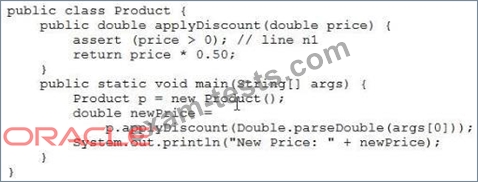Question 56
Given:
public class Emp {
String fName;
String lName;
public Emp (String fn, String ln) {
fName = fn;
lName = ln;
}
public String getfName() { return fName; }
public String getlName() { return lName; }
}
and the code fragment:
List<Emp> emp = Arrays.asList (
new Emp ("John", "Smith"),
new Emp ("Peter", "Sam"),
new Emp ("Thomas", "Wale"));
emp.stream()
//line n1
.collect(Collectors.toList());
Which code fragment, when inserted at line n1, sorts the employees list in descending order of fName and then ascending order of lName?
public class Emp {
String fName;
String lName;
public Emp (String fn, String ln) {
fName = fn;
lName = ln;
}
public String getfName() { return fName; }
public String getlName() { return lName; }
}
and the code fragment:
List<Emp> emp = Arrays.asList (
new Emp ("John", "Smith"),
new Emp ("Peter", "Sam"),
new Emp ("Thomas", "Wale"));
emp.stream()
//line n1
.collect(Collectors.toList());
Which code fragment, when inserted at line n1, sorts the employees list in descending order of fName and then ascending order of lName?
Question 57
Which statement is true about the single abstract method of the java.util.function.Function interface?
Question 58
Given the code fragment:
List<String> colors = Arrays.asList("red", "green", "yellow");
Predicate<String> test = n - > {
System.out.println("Searching...");
return n.contains("red");
};
colors.stream()
. filter(c -> c.length() > 3)
. allMatch(test);
What is the result?
List<String> colors = Arrays.asList("red", "green", "yellow");
Predicate<String> test = n - > {
System.out.println("Searching...");
return n.contains("red");
};
colors.stream()
. filter(c -> c.length() > 3)
. allMatch(test);
What is the result?
Question 59
Given:

And given the commands:

What is the result?

And given the commands:

What is the result?
Question 60
Given:

and the command:
java Product 0
What is the result?

and the command:
java Product 0
What is the result?

